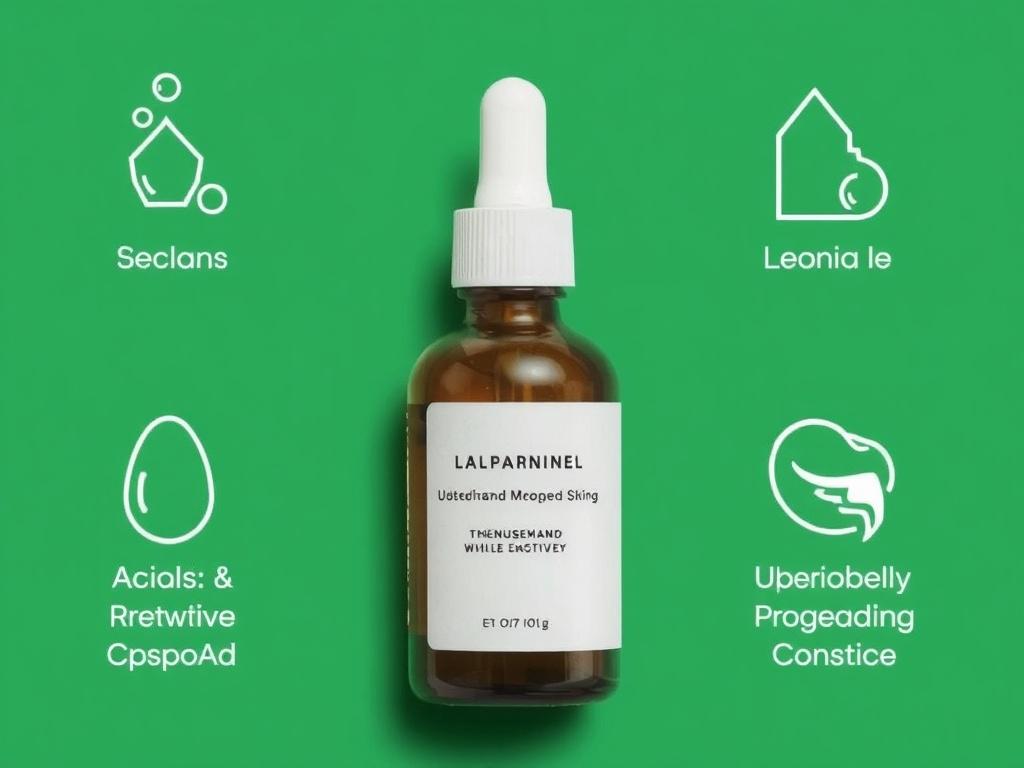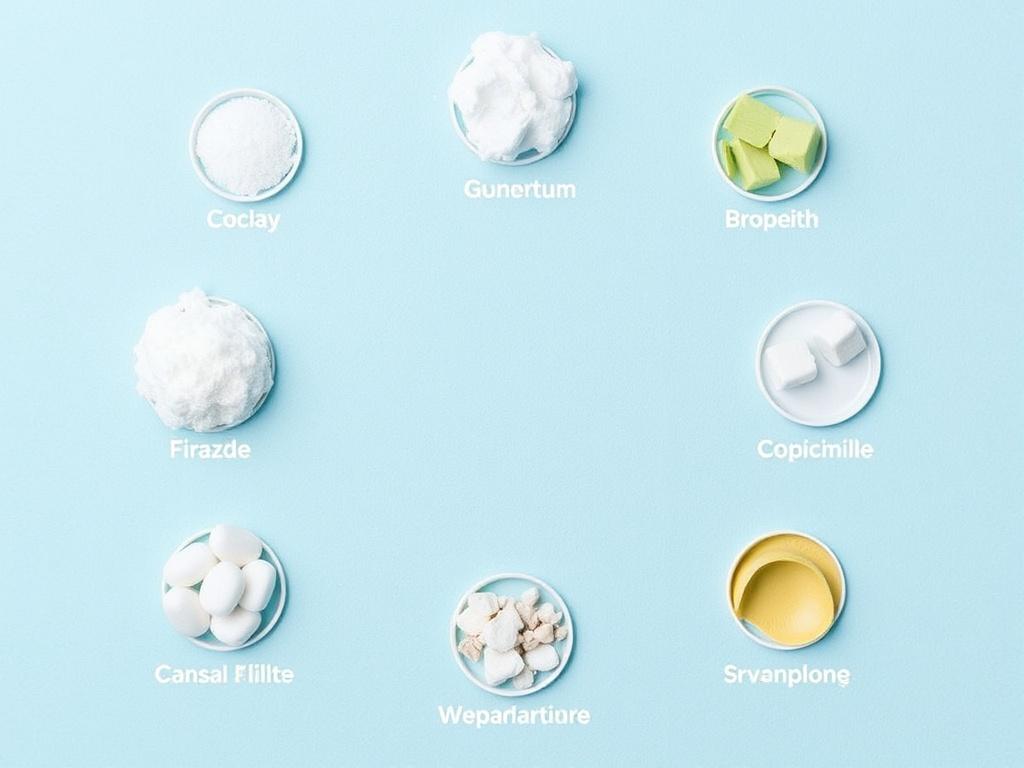Содержание статьи
- 1 What Does It Mean to Have Sensitive Skin?
- 2 Common Skincare Ingredients to Avoid for Sensitive Skin
- 3 Hidden Ingredients That May Surprise You
- 4 Acids and Retinoids: Proceed With Caution
- 5 How to Identify Sensitive Skin Friendly Products
- 6 Safer Alternatives and Soothing Ingredients for Sensitive Skin
- 7 Tips for Building a Sensitive Skin Skincare Routine
- 8 When to See a Dermatologist
- 9 Conclusion
When it comes to skincare, especially if you have sensitive skin, choosing the right products can feel like navigating a maze. Sensitive skin can react unpredictably to certain ingredients, leading to irritation, redness, itching, or even breakouts. Understanding which ingredients to avoid is essential for maintaining healthy, calm, and glowing skin. In this comprehensive guide, we’ll dive deep into the skincare ingredients to avoid for sensitive skin and explain why they can cause problems. We’ll also look at safer alternatives and how to read product labels like a pro.
What Does It Mean to Have Sensitive Skin?
Sensitive skin isn’t a formal medical diagnosis but rather a description of skin that reacts more strongly to environmental factors, skincare products, or certain ingredients. People with sensitive skin often experience burning, stinging, redness, or dryness after using a product that others tolerate well. Various factors can contribute to sensitive skin, including genetics, skin barrier damage, or underlying skin conditions like eczema or rosacea.
The first step in avoiding negative reactions is understanding what makes certain ingredients problematic. Many ingredients that are safe for normal or oily skin can trigger inflammation or discomfort in sensitive skin because the skin’s barrier is more fragile and reactive. This fragility means that potentially irritating components penetrate deeper and cause more damage.
Common Skincare Ingredients to Avoid for Sensitive Skin
Not all skincare ingredients are created equal, and some are known to cause sensitivity or irritate the skin. Here’s an overview of the most common skincare ingredients to avoid for sensitive skin, explained in simple terms.
| Ingredient | Why to Avoid It | Commonly Found In |
|---|---|---|
| Fragrances | Fragrances are one of the primary culprits behind irritation and allergic reactions. They can contain numerous chemical compounds that trigger inflammation and redness. | Perfumes, scented lotions, creams, toners |
| Alcohol (especially denatured alcohol) | Alcohol can dry out the skin by stripping its natural oils, making sensitive skin even more prone to irritation and tightness. | Toners, astringents, some moisturizers |
| Sulfates (like Sodium Lauryl Sulfate/SLS) | Sulfates are surfactants designed to create foam, but they can strip the skin of natural protective oils, leading to dryness and irritation. | Cleansers, shampoos, body washes |
| Essential Oils | While natural, essential oils like peppermint, eucalyptus, and lavender can cause allergic reactions or sensitization, especially on delicate skin. | Facial oils, masks, lotions |
| Parabens | Some sensitive skin types react to parabens, preservatives used to prevent product spoilage, potentially causing irritation or hormonal disruption concerns. | Lotions, sunscreens, makeup |
| Exfoliating Acids (AHA/BHA) | Though beneficial in moderation, acids like glycolic acid and salicylic acid can be too harsh or cause dryness and redness if overused or too concentrated. | Cleansers, serums, chemical exfoliants |
| Retinoids | Retinoids accelerate cell turnover but can cause peeling, redness, and burning sensations in sensitive skin, especially when first introduced. | Anti-aging creams, serums |
| Synthetic Dyes | Artificial colors can cause contact dermatitis or worsen skin sensitivity by irritating the skin barrier. | Some cleansers, moisturizers, makeup products |
| Formaldehyde-Releasing Preservatives | These preservatives release formaldehyde over time, which can be irritating and has raised concerns about harmful effects. | Shampoos, conditioners, makeup |
Fragrances and Sensitive Skin
Fragrances are added to countless skincare products to give a pleasant scent, but they are often a double-edged sword for those with sensitive skin. Even products labeled “natural fragrance” or “essential oils” can cause reactions because essential oils themselves are potent allergens. Synthetic fragrances, in particular, involve dozens of chemical compounds, many of which are not listed on labels due to proprietary formulas. This lack of transparency makes avoiding them tough but worthwhile. If you have sensitive skin, seek out fragrance-free or unscented products.
The Role of Alcohol in Irritating Sensitive Skin
Not all alcohols are bad — fatty alcohols like cetyl alcohol and stearyl alcohol can actually hydrate the skin. However, denatured alcohol or isopropyl alcohol are drying and stripping agents. They break down the lipids in your skin’s barrier, reducing its ability to retain moisture and protect itself from irritants. This can lead to increased sensitivity, redness, and flakiness over time.
Sulfates: Why They Can Be Too Harsh
If you love the feeling of a foamy cleanser, it’s likely because of sulfates like Sodium Lauryl Sulfate (SLS). These compounds are excellent at cutting through oils and dirt, but they’re notorious for leaving sensitive skin dry and itchy. They strip away the skin’s natural oils, which some skin types need to stay balanced. Opting for sulfate-free cleansers can reduce the likelihood of irritation, especially when paired with a good moisturizer.
Hidden Ingredients That May Surprise You

Sometimes, ingredients that seem innocuous can cause trouble. Many preservatives and additives serve important functions but may inflame sensitive skin.
- Formaldehyde-Releasing Preservatives: Ingredients such as quaternium-15, DMDM hydantoin, and imidazolidinyl urea release small amounts of formaldehyde, which can lead to allergic reactions and sensitivity.
- Synthetic Dyes: Often overlooked, synthetic colors can cause contact dermatitis and irritation, especially if your skin is prone to reactions.
- Parabens: Though the scientific community widely debates their safety, parabens can still trigger skin irritation in sensitive individuals.
Acids and Retinoids: Proceed With Caution

Many skincare devotees embrace acids and retinoids for their powerful benefits like exfoliation, skin renewal, and anti-aging effects. However, these ingredients can be too strong for sensitive skin if not used correctly.
Alpha Hydroxy Acids (AHA) and Beta Hydroxy Acids (BHA)
AHAs, like glycolic acid and lactic acid, exfoliate the surface layer of dead skin cells, encouraging cell turnover. BHAs, mainly salicylic acid, penetrate deeper to clear pores. When used moderately, these acids can improve sensitive skin by removing dull buildup and preventing breakouts. But applying high concentrations or using them too often can cause redness, dryness, and an itchy, stinging sensation.
Retinoids and Retinol
Retinoids, derivatives of Vitamin A, work by increasing cell turnover and boosting collagen production. Unfortunately, they often provoke a “retinization” period—when the skin peels, flakes, or becomes red and sore—especially on sensitive skin. To minimize these effects, it’s advisable to start with lower concentrations, apply retinoids sparingly, and pair them with soothing moisturizers.
How to Identify Sensitive Skin Friendly Products
Armed with an understanding of what to avoid, the next step is seeking out products formulated specifically for sensitive skin. Here are some tips and a checklist to help you identify skin-friendly options.
- Look for “Fragrance-Free” Labels: These products will not contain added fragrances or essential oils that can irritate skin.
- Check for Soothing Ingredients: Components like aloe vera, chamomile, ceramides, and hyaluronic acid can help calm and hydrate sensitive skin.
- Avoid Long Ingredient Lists: The simpler the product, the less chance of irritation. Minimalist formulations often suit sensitive skin best.
- Patch Test New Products: Before using a product all over your face, apply a small amount on your inner forearm or behind your ear for 24 to 48 hours to ensure no reaction occurs.
- Seek Dermatologist Recommendations: Professional advice tailored to your skin type is invaluable.
Sample Ingredient Labels: What to Watch For
Let’s decode sample ingredient lists to spot warning signs and skin-friendly options.
| Problematic Ingredients | Indicator in Label | Reason to Avoid |
|---|---|---|
| Fragrance | “Fragrance,” “Parfum,” “Essential Oils” (e.g., lavender oil, peppermint oil) | Can cause irritation, allergic reactions |
| Alcohol | “Alcohol Denat,” “Isopropyl Alcohol,” “SD Alcohol” | Drying, damages skin barrier |
| Sulfates | “Sodium Lauryl Sulfate (SLS),” “Sodium Laureth Sulfate (SLES)” | Strips oils, irritates skin |
| Parabens | “Methylparaben,” “Propylparaben,” “Butylparaben” | Possible irritant, controversial |
| Formaldehyde Releasers | “Quaternium-15,” “DMDM Hydantoin,” “Imidazolidinyl Urea” | Can trigger allergic reactions |
Safer Alternatives and Soothing Ingredients for Sensitive Skin
Knowing what to avoid is only half the battle. To maintain healthy sensitive skin, look for ingredients that help soothe, protect, and repair the skin barrier. Here are commonly recommended alternatives:
- Ceramides: Essential lipids that help restore and protect the skin’s moisture barrier.
- Niacinamide (Vitamin B3): Anti-inflammatory, improves skin barrier function, and reduces redness.
- Hyaluronic Acid: Hydrates deeply without irritating the skin.
- Aloe Vera: Soothes inflammation and redness naturally.
- Colloidal Oatmeal: Calms itchiness and repairs skin with antioxidant properties.
- Panthenol (Provitamin B5): Moisturizes and aids in skin healing.
Examples of Sensitive Skin Friendly Product Types
When shopping for skincare, keep an eye out for these product types and formulations:
| Product Type | Features to Look For |
|---|---|
| Cleansers | Non-foaming, sulfate-free, fragrance-free, gentle surfactants |
| Moisturizers | Fragrance-free, contains ceramides, hyaluronic acid, minimal ingredients |
| Sunscreens | Mineral-based (zinc oxide, titanium dioxide), free from fragrances and preservatives |
| Toners | Alcohol-free, hydrating, soothing ingredients like aloe or rose water |
Tips for Building a Sensitive Skin Skincare Routine
Aside from avoiding problematic ingredients, how you use skincare plays a big role in minimizing irritation. Follow these tips for a gentle yet effective routine:
- Introduce New Products Slowly: Patch test and add one product at a time to monitor reactions.
- Keep It Simple: Avoid layering too many active ingredients or treatments.
- Hydrate and Protect: Moisturize twice daily and always use sunscreen to protect the skin barrier.
- Be Gentle: Avoid harsh scrubs, rough towels, and excessive washing.
- Listen to Your Skin: If irritation occurs, stop the product and soothe your skin.
When to See a Dermatologist

If you continue experiencing redness, itching, burning sensations, or unexplained breakouts despite using mild products, consult a dermatologist. They can perform patch tests, diagnose any underlying skin conditions, and recommend specialized treatments suited for your sensitive skin.
Summary Table: Do’s and Don’ts for Sensitive Skin
| Do’s | Don’ts |
|---|---|
| Use fragrance-free, gentle products | Avoid fragranced and scented skincare |
| Choose sulfate-free cleansers | Don’t use sulfates or harsh surfactants |
| Patch test new products | Don’t rush into trying multiple new products |
| Protect skin with mineral sunscreens | Avoid chemical sunscreens that cause stinging |
| Use moisturizers with ceramides and hyaluronic acid | Stay away from products with drying alcohols |
Conclusion
Understanding skincare ingredients to avoid for sensitive skin is crucial for anyone seeking to maintain a comfortable, healthy complexion free from irritation. Fragrances, harsh alcohols, sulfates, parabens, and certain preservatives can all disrupt the fragile skin barrier, leading to unwanted reactions. Meanwhile, acids and retinoids, though beneficial in many cases, require careful, gradual use. By choosing products labeled fragrance-free, sulfate-free, and formulated with soothing ingredients like ceramides and hyaluronic acid, you empower your skin to heal and protect itself. Remember that building a sensitive skin skincare routine is about simplicity, patience, and attentiveness. When in doubt, consult a dermatologist for personalized advice. With the right knowledge and care, sensitive skin can glow just as beautifully as any other skin type.

